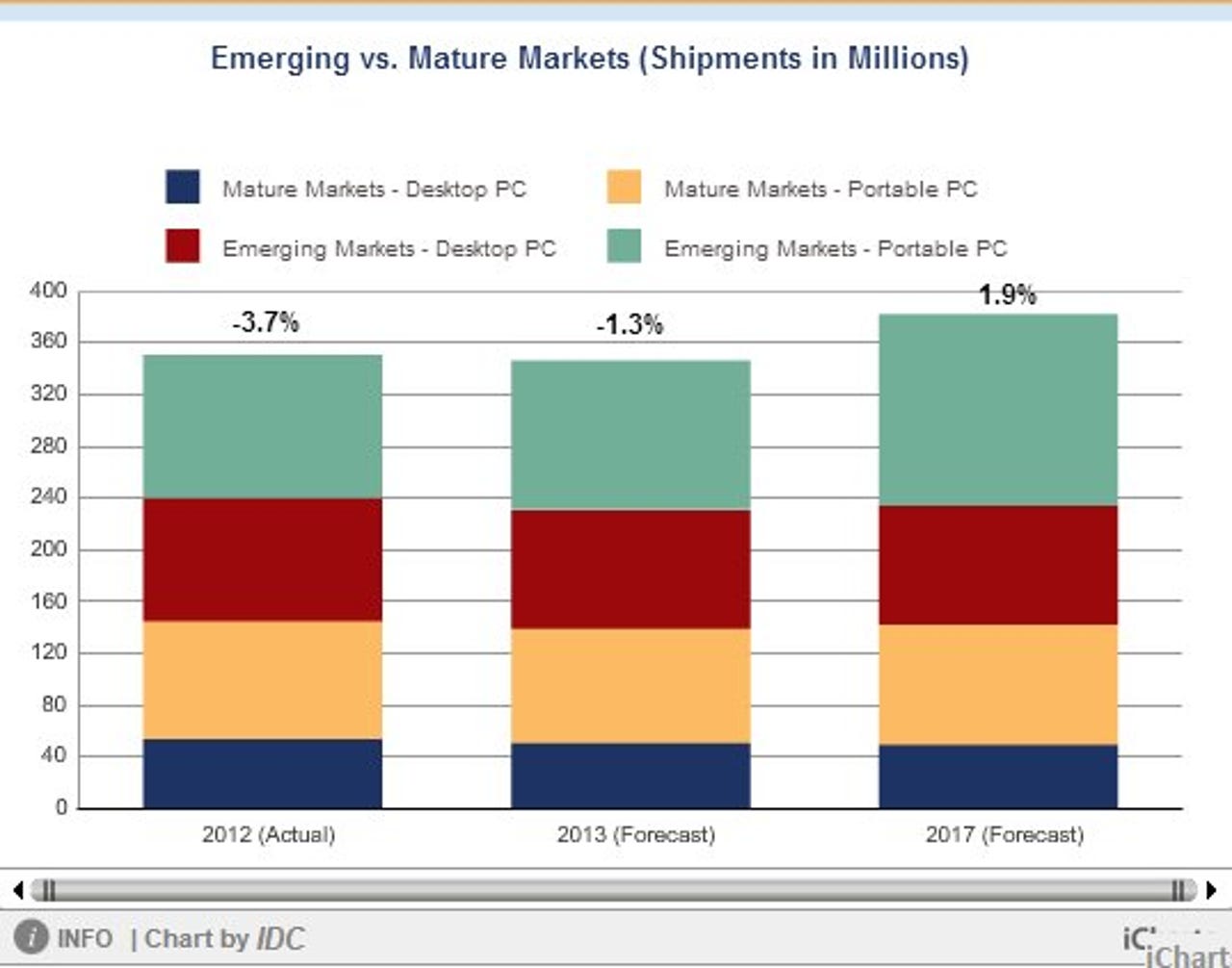PC market may suffer a double-digit decline this quarter, warns IDC

Today's PC industry relies on China not only to manufacture PCs but also to buy them: It currently accounts for about one fifth of the world market. China's falling PC purchases have therefore prompted research company IDC to knock two percentage points off its forecast for this quarter, and a double-digit decline is not out of the question.
IDC's Loren Loverde said in a statement: "Based on our latest quarterly figures, global PC shipments were expected to decline by 7.7 percent in the first quarter, as vendors and the supply chain work through the Windows 8 transition. However, our February monthly data suggest that we could see a drop touching double digits in the first quarter and a mid-single-digit decline in the second quarter before we see any recovery in the second half of the year."
China's slower-than-expected growth was "partially due to the timing of Chinese New Year", said IDC. There were also government budget cuts and anti-corruption measures.
IDC said: "March should recover somewhat in China, but not enough to offset the weak February results." However, PC market sales in Europe, the Middle East, and Africa (EMEA), Latin America, and Asia-Pacific (excluding Japan) were close to forecast figures.
IDC is currently forecasting that sales for the whole of 2013 will be just 1.3 percent down on last year's, and that sales will be up by 1.9 percent in 2017. In other words, PC sales will essentially remain flat.
The PC industry is now a replacement market, and most users see little reason to replace their current machines. Microsoft's major programs no longer need more powerful PCs to run them, and almost any PC bought in the past seven years can run Windows 7, Windows 8, and Microsoft Office perfectly well.
With Windows 8, Microsoft made an effort to provide the incentive for users to buy new PCs with touchscreens, and it also tried to expand into new markets by including a free tablet interface and software along with the established desktop interface. Intel also has an attractive new processor, code-named Haswell, on the way.
However, Loverde said: "Even getting to positive growth in the second half of 2013 will take some attractive new PC designs and more competitive pricing relative to tablets and other products."
But one thing that does bode well for future PC sales is the large installed base of business systems running the 11-year-old Windows XP. With the ending of Window's XP support, companies will have to tackle the malware assault without the benefit of security patches. This will increase the cost and reduce the benefits of running XP.
It already costs more to run 32-bit Windows XP than 64-bit Windows 7, because of its relative lack of security and stability and its inferior real-world performance (more delays in standard operations such as web browsing, more reboots, etc) even on the same hardware. Given the additional time savings from installing new PCs that have more modern processors with much integrated graphics, and the potential savings from reduced power usage, the business case is easily made.
Of course, not all businesses behave rationally even when it's in their own interests, and some are so cash strapped they're thinking only of survival. Following a triple- or quadruple-dip recession, the rump of XP users may be bigger than expected, but there should be enough upgraders to sustain the PC market into 2017.
